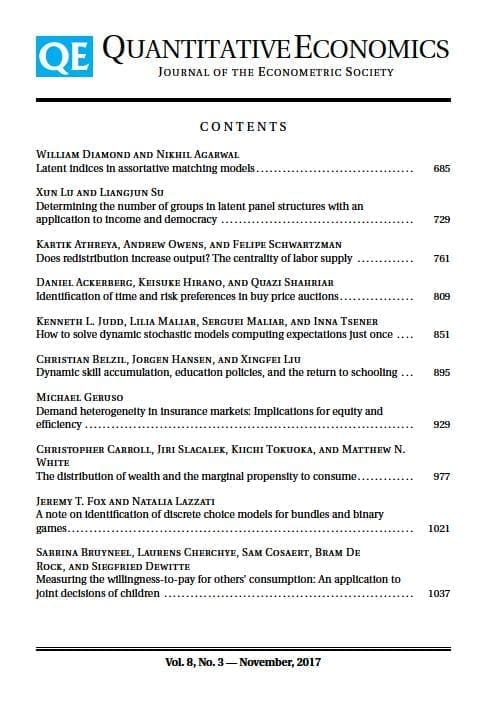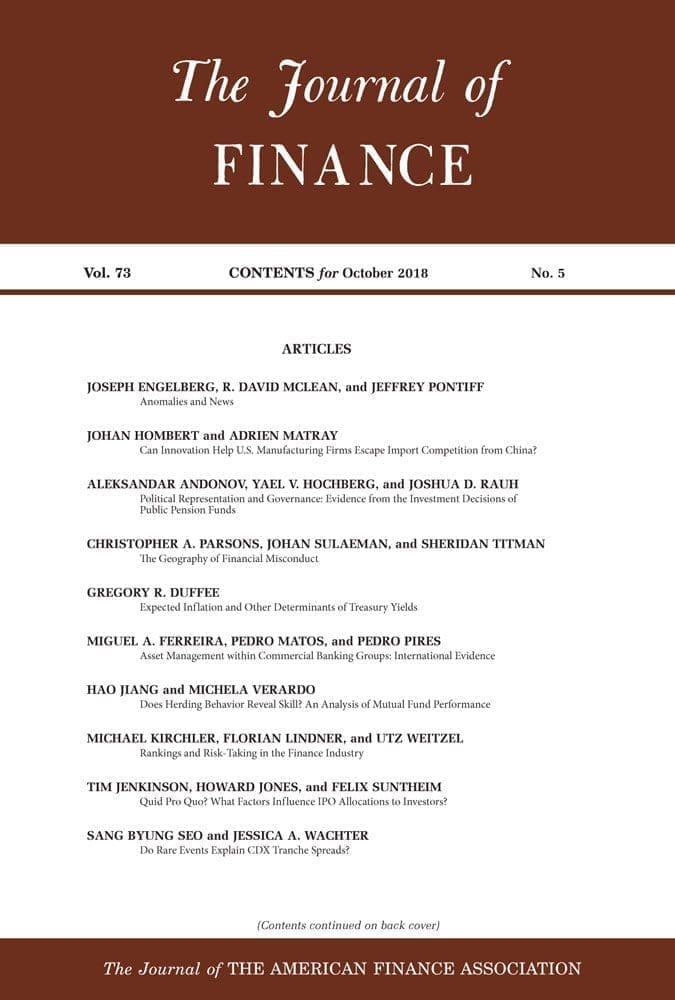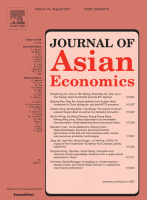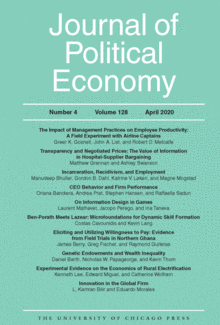Our faculty has structured the department to have strong coverage in our five core areas:
Within these areas, our faculty work on a wide range of topics in economics important to the country and the world. Some of our most impactful work focuses on the US and global financing system, how unemployment affects workers and the economy, causes and consequences of economic inequality and poverty, household economic choices and economic behavior, and the importance of game theory and political economy to understanding economic outcomes.
By focusing on these five core areas, particularly at the graduate level, the department offers a unique, specific educational experience. Aside from traditional coursework, research, and special lectures, the department holds three weekly seminars to encourage collaboration and communication within these five disciplines.
Research Highlights
-
Mandatory vs. Discretionary Spending: The Status Quo Effect
Research Area: EconometricsDo mandatory spending programs such as Medicare improve efficiency? We analyze a model with two parties allocating a fixed budget to a public good and private transfers each period over […]
-
The Distribution of Wealth and the Marginal Propensity to Consume
Research Area: Economic theoryIn a model calibrated to match micro- and macroeconomic evidence on household income dynamics, we show that a modest degree of heterogeneity in household preferences or beliefs is sufficient to […]
-
Expected Inflation and Other Determinants of Treasury Yields
Research Area: FinanceShocks to nominal bond yields consist of news about expected future inflation, expected future real short rates, and expected excess returns—all over the bond’s life. I estimate the magnitude of […]
-
A Mechanism for Eliciting Second-Order Beliefs and the Inclination to Choose
Research Area: EconometricsThis paper describes a direct revelation mechanism for eliciting decision makers’ introspective beliefs on sets of subjective prior or posterior probabilities. The proposed scheme constitutes a revealed-preference procedure for measuring […]
-
Belief Distortions and Macroeconomic Fluctuations
Research Area: FinanceThis paper combines a data-rich environment with a machine learning algorithm to provide new estimates of time-varying systematic expectational errors (“belief distortions”) embedded in survey responses. We find sizable distortions […]
-
Misclassification Errors In Labor Force Statuses and the Early Identification of Economic Recessions
Research Area: MacroeconomicsAccurate identification of economic recessions in a timely fashion is a major macroeconomic challenge. The so-called Sahm recession indicator (Sahm, 2019), one of the most reliable early detectors of the […]
-
Missing Events in Event Studies: Identifying the Effects of Partially Measured News Surprises
Research Area: MacroeconomicsMacroeconomic news announcements are elaborate and multi-dimensional. We consider a framework in which jumps in asset prices around announcements reflect both the response to observed surprises in headline numbers and […]
-
Genetic Endowments and Wealth Inequality
Research Area: Applied microeconomicsWe show that genetic endowments linked to educational attainment strongly and robustly predict wealth at retirement. The estimated relationship is not fully explained by flexibly controlling for education and labor […]
-
Bargaining and News
Research Area: FinanceWe study a bargaining model in which a buyer makes frequent offers to a privately informed seller, while gradually learning about the seller’s type from “news.” We show that the […]





